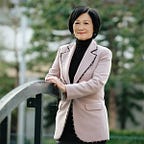【Hard Facts about seekiPut people back to work rather than hand out cash 】
Hong Kong Chief Executive Mrs. Carrie Lam is doing her usual consultations with different groups and political parties in preparation for her policy address to be delivered on 14 October. Many political parties have called on her to hand out more cash or “consumption vouchers” to assist those devastated by the Covid-related shutdown of many parts of our economy. My Party, the New People’s Party, resisted populist calls to do so. Propping up the economy by handouts or “consumption vouchers” is not sustainable. The best way to help those affected by Covid is to put people back to work.
Just look at the numbers.The government already approved a cash handout of HK$10k per Hong Kong permanent resident to 7 million eligible.. That cost the government H$70.1 billion, including administrative fees charged by banks amounting to HK$1 billion. The government’s fiscal reserve is down to HK$800b., and the Financial Secretary has forecast a record deficit of HK$290 b. in this financial year. If the government forks out another HK$7.1 b to all Hong Kong permanent residents irrespective of need, how long can this be sustained?
The best way to help those unemployed or under-employed is to put people back to work. A lot of groups affected by Covid who came to see me told me that they want to able to work again rather than beg for government handouts. If we could get Covid-19 under control and re-open the economy in stages, and re-open the border, that would put many people back to work and mitigate the financial pain.
Re-opening the border is of paramount importance,partly for humanitarian reasons so that many people can re-unite with their folks in Hong Kong or the mainland; and partly to provide more stimulus to the domestic economy. If cross-border traffic could pick up, more visitors and business would buoy our economy. Re-opening our border with mainland China and Macau should be the first step, leading to re-connecting Hong Kong with other countries or territories that are relatively low-risk. Only that way can the economic engine be re-charged.
The latest results of the voluntary community testing scheme show that as at 8 pm 11 September, 1.62 million people have tested and only 23 have tested positive. That gives an infection rate of 0.0014, or 1 in 100,000. These figures are re-assuring. I hope the data obtained will help pave the way to re-opening our border with mainland China and in due course with different parts of the world with lower risks.
